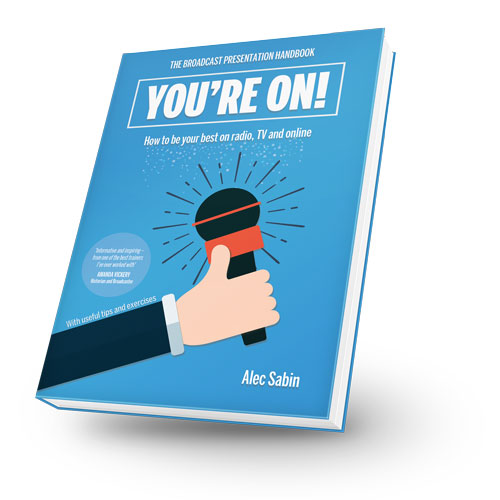Voice and Breathing
Alec can help you improve your voice and breathing skills, whether a beginner or an experienced presenter. By recording and playback, we can explore where your needs lie, and discover how best to improve on your performance. You can acquire techniques of good voice and breathing with practice and coaching.
Why do I need voice training?
It would be hard to overestimate the value of proper attention to voice and breathing in presentation. Voice and breathing exercises can be as useful to someone making presentations or speaking on radio and TV, as they are to an opera singer. Some of the same techniques used by professional singers and actors can be used to facilitate effective presentation. If you have ever run out of breath while delivering a script or speech you will know that the physicality of voice and breathing can fail you at important moments.
It is of course equally true and important to note that in normal conversation we hardly ever think about intonation, pitch, breathing or suchlike. How can they look after themselves in ‘normal’ conversation when they can be such an issue in presenting? If you make demands on your voice through any kind of professional speaking – then you need to think about voice and breathing techniques.
Intonation and Vocal Variety
Female Voices
Some women complain that their voices seem too high pitched and consequently, they often think, lack authority. They think they sound girly. It is true of course that women have higher voices than men. Often people judge themselves harshly when listening to recordings.. But remember your own judgement may not be shared by the majority of your audience.
There is however a natural way to lower your pitch. It involves resonance. There are resonators in the head, the mouth and the nose and also in the chest and even further down. The whole body can be used to resonate the sound made by our voices. To lower the voice pitch naturally one technique that can be used is to resonate the voice in the chest as well as in the head.
Pace
Projection
Breathing and Relaxation
Breathing, like presentation itself, is not something we are normally aware of until there is a problem. Just as we do not focus on our breathing when speaking in a conversation nor do we want to be thinking about it when we are presenting. And yet it does come up when we run out of breath, sentences are too long or we are in some other way not in as much control of our speech as we would like to be, often when reading a script.
A confident performance usually comes from a relaxed performer. Tension – the opposite of relaxation – will mar that performance and sap necessary energy. When it goes well there is a feeling that there is less effort and more concentration – you are on top form without trying to be. How do you create that feeling? How, when you are not feeling on form, can you get it back? In a word: discipline.
Nerves
A greater problem than having nerves is not having them. Nerves are energy and that is a useful commodity in performance. You can turn that energy to your advantage, and use it to lift your game. Get those butterflies to fly in formation.
Remember nerves are normal. Most people about to perform suffer from them, and more importantly even seasoned and well-known performers have them. So you are not on your own.
Accents and Dialects
Is it clear?
What can be done about it?
Voice Exercises

You're On!
Alec’s latest book ‘You’re On!’ is available to buy using the link below. The book provides exercises to improve vocal quality and breathing, tips on controlling nerves, and an insight into how broadcast audio and video technology can work for you. There is expert guidance and further exercises on everything from ad-libbing and podcasting to reading a script and interviewing.